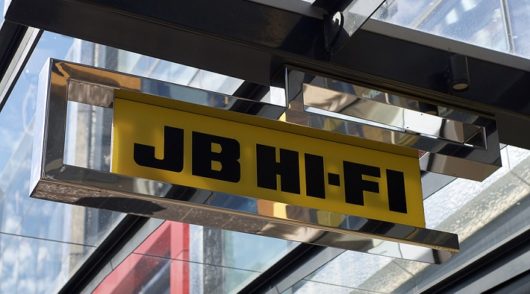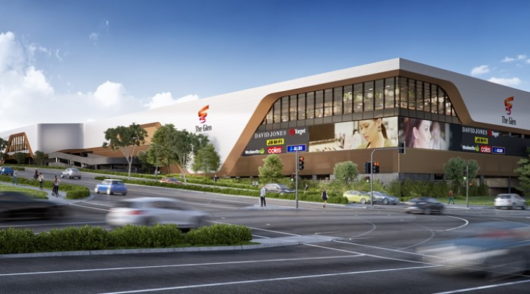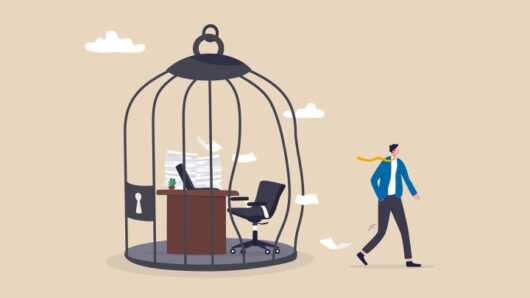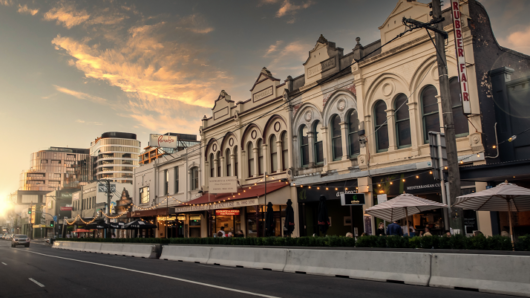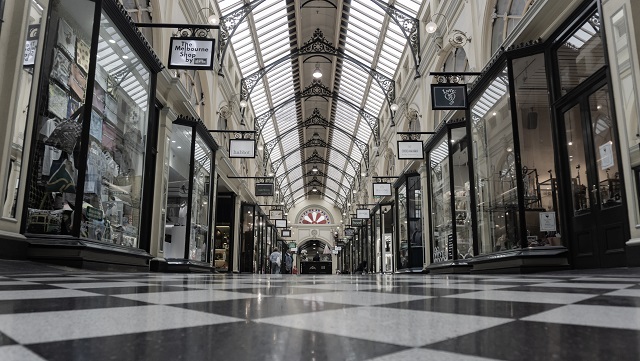
The worst case scenario for many retailers came to fruition on Monday afternoon, when Victorian Premier Daniel Andrews announced that retail would be among the industries forced to shut down for six weeks under stage 4 restrictions taking effect at 11:59pm on Wednesday, August 5.
But chief executive of the Australian Retailers Association Paul Zahra has revealed it could have been much worse. Despite consulting with the Victorian Government for three days, it wasn’t clear to Zahra until the announcement on Monday that online retail or contactless click-and-collect would be allowed under the new restrictions.
“We were expecting the worst, so we were pleased to hear the government made the concession that online deliveries and click-and-collect will continue,” Zahra told Inside Retail. “It will help cushion the losses from the store closures.”
Here’s what’s restricted
Under stage 4 restrictions, businesses will be sorted into three groups: the first group will continue to operate as normal, the second group will need to close and the third group will continue to operate but under significantly different conditions.
The first group includes essential services, such as supermarkets, grocery stores, bottle shops, pharmacies, petrol stations, banks, newsagencies, post offices and businesses involved in the state’s frontline response.
Most retailers, however, fall into the second group, along with most manufacturers, hospitality and accommodation services and financial, professional and administrative services.
This means the vast majority of stores in Melbourne will be closed to the public from Thursday, though they can operate for the purpose of supporting click-and-collect and delivery, with safety protocols in place.
Hardware, building and garden suppliers will be able to serve tradespeople in-store, but not the public.
Warehouses and distribution centres are in the third group and will only be able to have two thirds of their normal workforce onsite at any one time.
According to Zahra, the restrictions will have a “devastating impact” on Victorian retail, which accounts for roughly 25 per cent of the nation’s retail sales. But he said the ARA has always supported a “safety-first” approach.
The aim of the shutdown is to severely limit the movement of people in metropolitan Melbourne, where there is now a high level of community transmission of Covid-19. This occurs when someone contracts the virus, but a direct source cannot be identified.
On top of the business restrictions, only one person from each household in metropolitan Melbourne is allowed to leave their home to go shopping once per day, outdoor exercise is limited to one hour per day and all shopping and exercise must occur within 5km of the home.
Schools and childcare centres are shut, except to vulnerable children and children of permitted workers, university and TAFE study is all online and everyone must work from home if they can. In addition, there is a nightly curfew from 8pm to 5am.
According to Andrews, around one million fewer Victorians will be moving around for work in stage 4.
“This will be hard. It’ll be frustrating. It’ll be confusing. For a lot of workers and their families, it’ll be heartbreaking,” the Premier said on Monday.
Who will be hit hardest?
In the retail sector, small businesses and those without a strong online offering are expected to be the hardest hit.
Gavin Culmsee, general manager of Bedshed, is counting himself lucky the national mattress franchise launched an e-commerce offering at the end of June.
“The timing in that regard is quite good, however, in our business, we’re primarily bricks-and-mortar,” he told Inside Retail.
Bedshed has 10 stores in metropolitan Melbourne, all franchisee operated, that will be closed to the public from Thursday. The retailer stayed open during all previous lockdowns, but Culmsee said he started preparing for forced store closures about two weeks ago, when the rising case numbers in Victoria made the outcome seem inevitable.
“From a survivability point of view, our guys are in a reasonably strong position,” he said.
“Our businesses tend to hold a fair level of inventory, so we’ll be supplying customers from in-store stock.”
Culmsee said he hasn’t calculated the impact of the Melbourne store closures on the national chain.
“I’m more concerned about the individual franchisees and trying to make a plan for them,” he said.
Bedshed has commenced a second round of rent negotiations on behalf of franchisees. It is also offering financial and mental health counselling to franchisees, their employees and their employees’ family members.
The stress and uncertainty of operating a retail business over the past five months should not be underestimated.
Mark Rubbo, managing director of Readings, a Melbourne bookstore chain, spoke frankly about the toll the new restrictions will take on his mental health.
“Obviously it will impact hugely on the business, on every business, but it will also impact on me. I haven’t had a day off since this started, and I probably won’t now for a while,” Rubbo told Inside Retail.
Readings closed its stores for the second time this year in early July when stage 3 restrictions were reintroduced in metropolitan Melbourne. It kept click-and-collect and online deliveries open, but as of Monday evening, Rubbo had not yet decided whether to continue to do so under stage 4.
“If the Government is saying they don’t want people to travel, then maybe we should just close down completely,” he said. “I’m a bit loath to because there are interstate online booksellers who are waiting to take our sales.”
The decision is complicated by the fact that September is the start of the Christmas season for Readings. As it stands, Rubbo doesn’t see how the retailer will be able to sell the volume it needs to carry it through the rest of the year.
“The whole year is going to be stuffed, you just have to accept it,” he said.
Here’s what support is available
Retail mogul Solomon Lew had harsh words for the Andrews Government on Monday, saying the shutdown could have been avoided if the state had acted sooner.
“Delaying has only placed further pressure on the rest of the country and the national economy,” said Lew, the executive chairman of Premier Investments, which operates Smiggle, Peter Alexander, Just Jeans and other discretionary retail chains.
“We expect significant consequences from the inaction, in particular, vast amounts of cost in Federal Government stimulus that is going to be required to support the Victorian community through this challenging period.”
On Monday, the Victorian Government announced additional resources for businesses that suffer significant losses or need to close due to the restrictions. Businesses in regional Victoria can apply for a $5,000 grant, while those in Melbourne and Mitchell Shire can apply for up to $10,000.
This is on top of the worker support measures the state announced last month, including $300 for workers who get tested for Covid-19, and $1500 for those who test positive and must self-isolate at home, but are not entitled to paid sick leave, special pandemic leave or other income support.
However, Zahra called for the extension of other support measures, such as the leasing code of conduct, which addresses rent relief and is set to expire in September.
“We are keen to see Victoria extend the measures currently supporting business into 2021 due to the profound impact of this ongoing pandemic lockdown period,” Zahra said.
Dr Jason Pallant, a marketing lecturer at Swinburne University of Technology, agreed that retailers must prepare for the lockdown to have “lasting effects”.
“Retailers should be looking at how they will operate in the future and not just assume things will go back to normal,” he told Inside Retail.
What’s next?
Indeed, it is now clear that there is no such thing as a linear recovery from Covid-19, either in terms of case numbers or the economy.
“There may be several waves of opening and shutting down as we battle through phases of infection in each state and nationally. Until consumers start to feel safe stepping out to shop and gather in crowded public places, consumer aversion is likely to keep a dampener on spend, and it will keep consumer foot traffic in-store down relative to pre-Covid periods,” said Jana Bowden, an associate professor at Macquarie University’s business school.
This can be seen in the small but persistent uptick in cases in other parts of the country, which has led some states to reintroduce restrictions they had previously relaxed.
South Australia recently reduced the limit on private gatherings at home from 50 to 10, and limited pubs, bars and restaurants to serving seated patrons only, after it reported three new cases on August 3.
Queensland reintroduced a similar rule for its hospitality sector on July 24, and closed its border to visitors from Greater Sydney on August 1, less than one month after it reopened its border to all interstate travellers except Victoria.
In New South Wales, new guidelines for gyms came into effect on August 1, and Premier Gladys Berejiklian is now urging residents to wear face coverings in supermarkets and on public transport. On August 3, the state reported 13 new coronavirus cases in the previous 24 hours.
Restrictions have largely been lifted in the Northern Territory, Western Australia, the Australian Capital Territory and Tasmania, although reduced capacity limits are still in place for bricks-and-mortar stores and other indoor venues and large outdoor gatherings may require approval from health authorities.
Western Australia and Tasmania have closed their borders to all interstate travellers, unless they have an exemption, while the Northern Territory and the Australian Capital Territory have banned travellers from hotspot areas, unless they have an exemption.
This story appears in the August 5, 2020, issue of Inside Retail Weekly. To keep all readers informed in the current crisis, we have unlocked premium content related to Covid-19. Please consider subscribing to support Insie Retail here.


